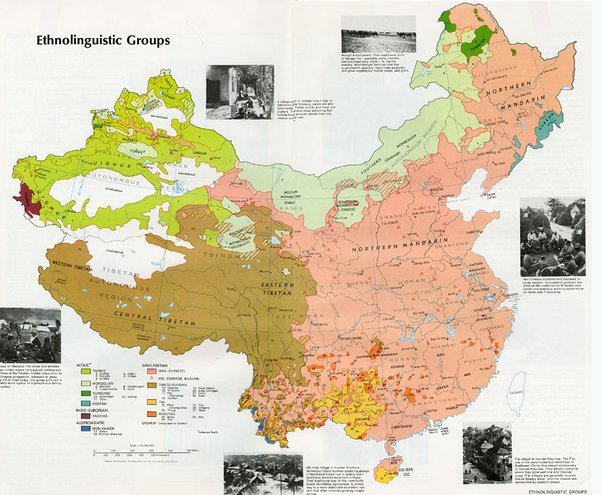Chinese culture is deeply rooted in human development, with ancient villages emerging around the Yellow River Valley approximately 7,000 years ago, and evidence of hominid activity dating back 1.7 million years. This rich history is mirrored in contemporary China, where visitors can explore historical sites like the Great Wall, the Terracotta Warriors, and the Leshan Giant Buddha, alongside modern attractions. The economic boom of the 1990s brought an influx of foreign workers to coastal cities, including our own experience in 2018. China offers a rewarding yet occasionally challenging experience for visitors. Notably, English is not widely spoken, particularly among those over 20, so learning a few basic phrases is essential. Embracing these and other cultural norms is crucial when visiting this ancient and intriguing civilization. China Visit: Tourists Should Avoid These 12 Things

Avoid Politically Sensitive Topics
China’s rich history and cultural nuances are deeply rooted in tradition and honor, influencing how people interact and what they consider taboo topics. When visiting China, it’s crucial to steer clear of discussing politically sensitive issues such as Tibet, Taiwan, and Tiananmen Square. These subjects are highly sensitive and often avoided by locals, especially when conversing with foreigners. Engaging in such conversations can lead to awkwardness or even conflict. Instead, focus on the rich cultural and historical sites like the Great Wall, the Terracotta Warriors, or the Leshan Giant Buddha, which offer a glimpse into China’s fascinating past and vibrant present. China Visit: Tourists Should Avoid These 12 Things
Avoid Playing with Chopsticks
Dining etiquette is an essential aspect of Chinese culture, and tourists should be mindful of how they use chopsticks. It’s important not to play with chopsticks or use them to point at others. Additionally, placing chopsticks upright in a bowl is considered bad luck, as it resembles incense sticks used in rituals for the deceased. Instead, lay them across the bowl or on a chopstick rest. Embracing local dining customs will help you navigate social interactions more smoothly and show respect for local traditions.
Don’t Expect Personal Space on Public Transport
China’s bustling cities like Shanghai and Beijing are known for their crowded public transportation systems. Unlike in Western countries, personal space is a luxury that is often sacrificed in China’s metros and buses. Be prepared to stand close to others and avoid large, dramatic displays of public affection. Understanding and accepting this cultural norm will make your travel experience more comfortable and enjoyable.
Don’t Expect Cash to be Widely Accepted
China has rapidly embraced digital payment methods, with mobile wallet apps like Alipay and WeChat Pay dominating everyday transactions. Cash is rarely used, especially in urban areas. Tourists should prepare by setting up these mobile wallets to avoid inconveniences. This shift to a cashless society is convenient but requires some preparation, like ensuring your phone is always charged and having a local SIM card for seamless transactions.
Don’t Visit During Major Chinese Holidays
Timing your visit to China around local holidays can significantly impact your travel experience. During major holidays like Chinese New Year, cities like Shanghai and Beijing can become ghost towns as locals travel to their hometowns. This can result in closed businesses and limited services. Conversely, popular tourist destinations can become overcrowded with domestic tourists, making it difficult to enjoy the attractions. Planning your trip outside these peak times will help you avoid these issues and have a more relaxed experience.
Don’t Visit A Chinese Friend’s Home Without Bringing A Gift
When visiting friends in China, it’s customary to bring a gift as a gesture of respect. Any thoughtful gift is generally acceptable, such as beverages, toys, or decorations. However, it’s important to avoid items like clocks, umbrellas, and chrysanthemum flowers due to their negative cultural associations. Clocks symbolize the passage of time and mortality, chrysanthemums are linked to mourning, and umbrellas suggest a desire for separation. Being mindful of these cultural nuances ensures a harmonious and respectful visit to Chinese homes, fostering meaningful interactions with your hosts.
Don’t Forget to Pack Toilet Paper
Public restrooms in China, especially in rural areas or less touristy destinations, often lack toilet paper. Tourists should always carry their own supply of toilet paper or sanitary wipes. Additionally, be prepared for the prevalence of squat toilets, which might require some practice for those unaccustomed to them. Packing these essentials ensures you are prepared for any situation and can focus on enjoying your trip.
Don’t Expect To Wing It When Planning Your Trip
Planning a trip to China requires thorough preparation due to visa requirements and bureaucratic procedures. In the past, obtaining a tourist visa was expensive and involved extensive documentation. Applicants needed to book flights, reserve accommodations, and demonstrate proof of return travel. Additionally, Chinese visa authorities scrutinize passports closely, particularly those with any damage.
For example, our initial visa application required us to appear in person at the immigration office in Hong Kong due to water-damaged passports. Documentation detailing previous travels may also be necessary, depending on your travel history. While visa policies have evolved, including recent changes in 2024, it’s prudent to anticipate potential delays and adhere to documentation requirements to ensure a smooth entry into the country.
Don’t Tip Unless It’s For a Tour
Unlike in many Western countries, tipping is not customary in China. In fact, offering a tip in most situations can lead to embarrassment for both the giver and the receiver. This stems from a cultural emphasis on honor and avoiding potentially embarrassing situations. Tipping, which may be seen as a gesture of gratitude in many cultures, can be interpreted differently in China, potentially causing discomfort.
However, there is a notable exception: tour guides. Tour guides in China often rely on tips as a part of their income, and it is considered polite and customary to tip them for their services. This is one area where tipping is appreciated and expected. Therefore, while you don’t need to budget extra cash for tipping in restaurants, shops, or taxis, be prepared to offer a tip to your tour guides. This practice ensures that you respect the local customs while also showing appreciation for the services provided.
Avoid Accepting Offers from Strangers
In tourist-heavy areas, be cautious of strangers approaching you with offers to visit “authentic” teahouses or similar attractions. These can often be scams where you end up paying exorbitant prices for simple services. It’s best to politely decline such offers and stick to well-known, reputable establishments for your cultural experiences.
Avoid Wearing Green Hats
A lesser-known cultural quirk in China is the association of green hats with infidelity. Wearing a green hat can attract unwanted attention and is best avoided. However, green clothing in other forms is perfectly acceptable. This small adjustment in your wardrobe can help you blend in more comfortably and avoid misunderstandings.
Don’t Be Afraid Of The Food
Chinese cuisine is diverse and offers a culinary adventure for any visitor. Embrace the opportunity to try local delicacies like xiao long bao, biangbiang noodles, and crispy duck. Hot pot meals are particularly popular, where you cook ingredients in a shared broth. However, be mindful of local dining etiquette, such as tasting dark liquids before adding them to your broth, as they might be vinegar instead of soy sauce. Being adventurous yet respectful of local customs will enhance your culinary experience.
For further information, visit: https://www.youtube.com/channel/UCNOerut76qgcT8TLECNc_6A
Read our previous articles: https://scitechupdate.com/index.php/researchers-develop-biocomputer-by-linking-16-brain-like-structures-grown-from-human-cells/
Breakthrough Material: NASA’s GRX-810 Could Change Everything (scitechupdate.com)
https://scitechupdate.com/index.php/china-is-generating-heat-waves-across-the-pacific-ocean
First 5G-enabled Surgery performed by Doctor (scitechupdate.com)
Hitchhiking Aliens: New Research into Panspermia (scitechupdate.com)
Two new COVID variants, called ‘FLiRT’ in the United States (scitechupdate.com)
Sex and Gender Studies: Unlocking Equality and Social Justice (scitechupdate.com)
https://scitechupdate.com/index.php/israel-advances-cancer-treatment-with-genomic-profiling/https://scitechupdate.com/index.php/stomach-cancer-causes-signs-and-treatment/

